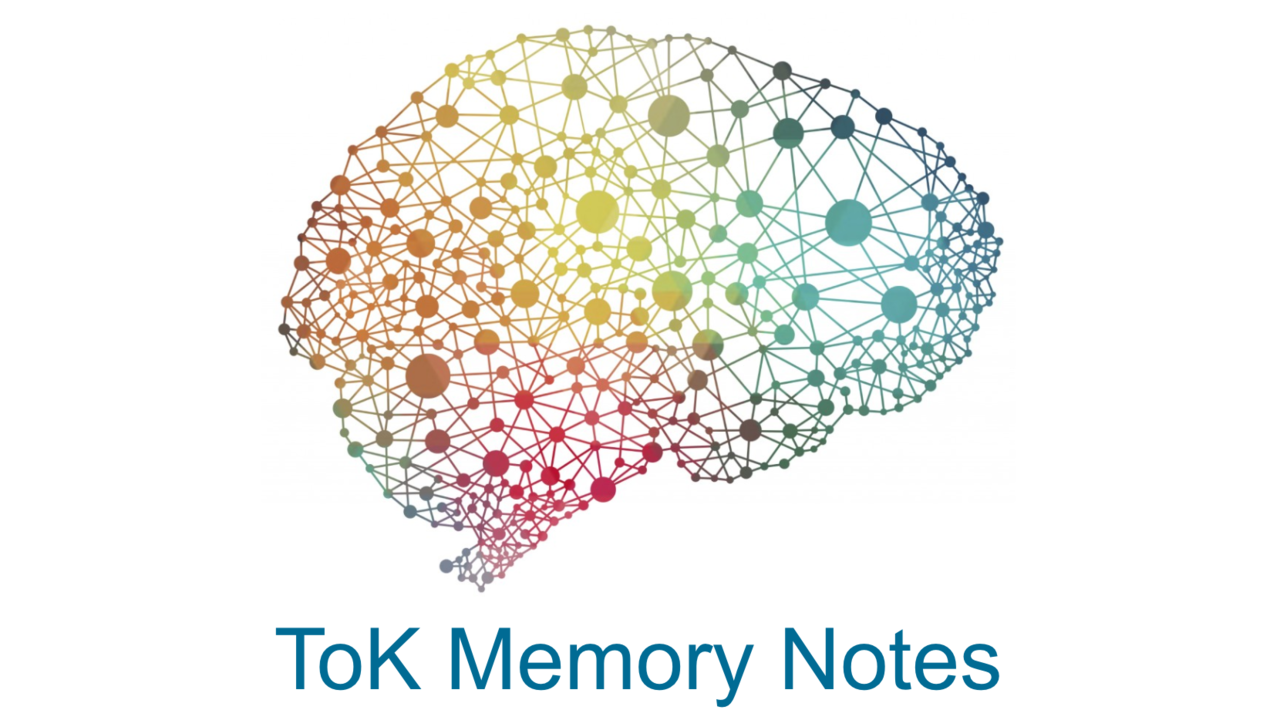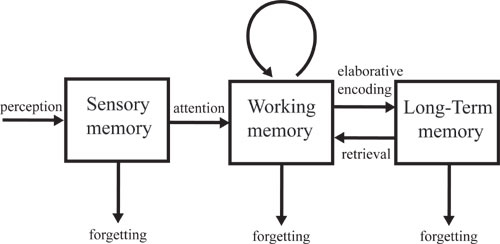Memory Notes - Theory of Knowledge

I know you'll find these TOK Memory notes helpful, but there is an even better version available to our supporting members here (the full Memory notes) --along with some very helpful TOK videos and other sources for your TOK essay and exhibition. Click here to try IBMastery.
Memory Quotes
- "We can invent only with memory." (Alphonse Karr)
- “Memory and imagination help [a man] as he works. Not only his own thoughts, but the thoughts of the men of past ages guide his hands; and, as a part of the human race, he creates.” (William Morris)
- “Memory feeds imagination.” (Amy Tan)
- “Memory is imagination in reverse.” (Stephen Evans)
- "Memory is deceptive because it is coloured by today’s events." (Albert Einstein)
- "It’s surprising how much memory is built around things unnoticed at the time." (Barbara Kingsolver)
- "Memory is man’s greatest friend and worst enemy." (Gilbert Parker)
- “I always think everything is going to last forever, but nothing ever does. In fact nothing exists longer than an instant except the thing that we hold in memory.” (Sam Savage)
- "No memory is ever alone; it’s at the end of a trail of memories, a dozen trails that each have their own associations." (Louis L'Amour)
- "Language is memory and metaphor." (Storm Jameson)
- "Nothing fixes a thing so intensely in the memory as the wish to forget it." (Michel de Montaigne)
- “What matters in life is not what happens to you but what you remember and how you remember it.” (Gabriel García Márquez)
Memory Definitions
- Memory is the faculty of the mind by which information is encoded, stored, and retrieved (Atkinson & Shiffrin, 1968).
- Memory is "The faculty by which the mind stores and remembers information." (Oxford Dictionaries)
How memory works
 A very basic explanation would say that memory is a process of:
A very basic explanation would say that memory is a process of:
- Perceiving something
- Information from your perception is sent to your working memory. Information can be retrieved from here (remembered).
- A fraction of the information in your working memory is sent to your long-term memory, where it can be retrieved.

For a more detailed explanation of more of the processes involved, have a look at the Download on this page called "Comic Explainer: How Memory Works. It does a great job of going through some of the processes involved in making memories. It's worth your time.
Things that affect memories
People tend to trust their memories more than they should. This comes up a lot in discussions about eye witness testimonies in court. People can be absolutely sure they saw or heard something, which they didn't.
Here are a few things that can affect memory:
- Attention. Memories are only formed when we observe something. We can't remember things that we we didn't notice in the first place.
- Time. Obviously time is a big thing that affects memories. If we noticed that something just happened to us, our working memory would have a record of it. But if it happened years ago, it's likely the long-term memory won't have a very good record of it.

- Mnemonics. Strategies like the Memory Palace or even this PEDMAS example can help us encode memories into easier to remember parts, which we can review easily later.
- Stories. The memories we form are affected by the narrative (the story) we are telling ourselves in a given situation (Ramachandran) or the stories others we tell about an event after it has occurred.
- Repetition. Reviewing memories in our head helps to keep them fresh. People who experiences Traumatic Stress Disorder (PTSD) feel they are reliving the traumatic event continually. The memory stays very fresh because the sufferers keep replaying the traumatic event it in their mind.
- Health. Aspects such as poor exercise, lack of sleep, and high levels of anxiety can also reduce the brain's ability to store new memories.
Okay, that's all for the TOK Memory notes preview. Click here to become a subscriber and you'll get the full, premium Memory notes right away. (Subscribers click here for the full TOK Memory notes.)

Cite this page as:
Woods, Tim. “Memory Notes - Theory of Knowledge ” IBMastery 2 April 2021. Web. <https://www.ibmastery.com/blog/memory-notes-theory-of-knowledge>
Woods, Tim. “Memory Notes - Theory of Knowledge ” IBMastery 2 April 2021. Web. <https://www.ibmastery.com/blog/memory-notes-theory-of-knowledge>






